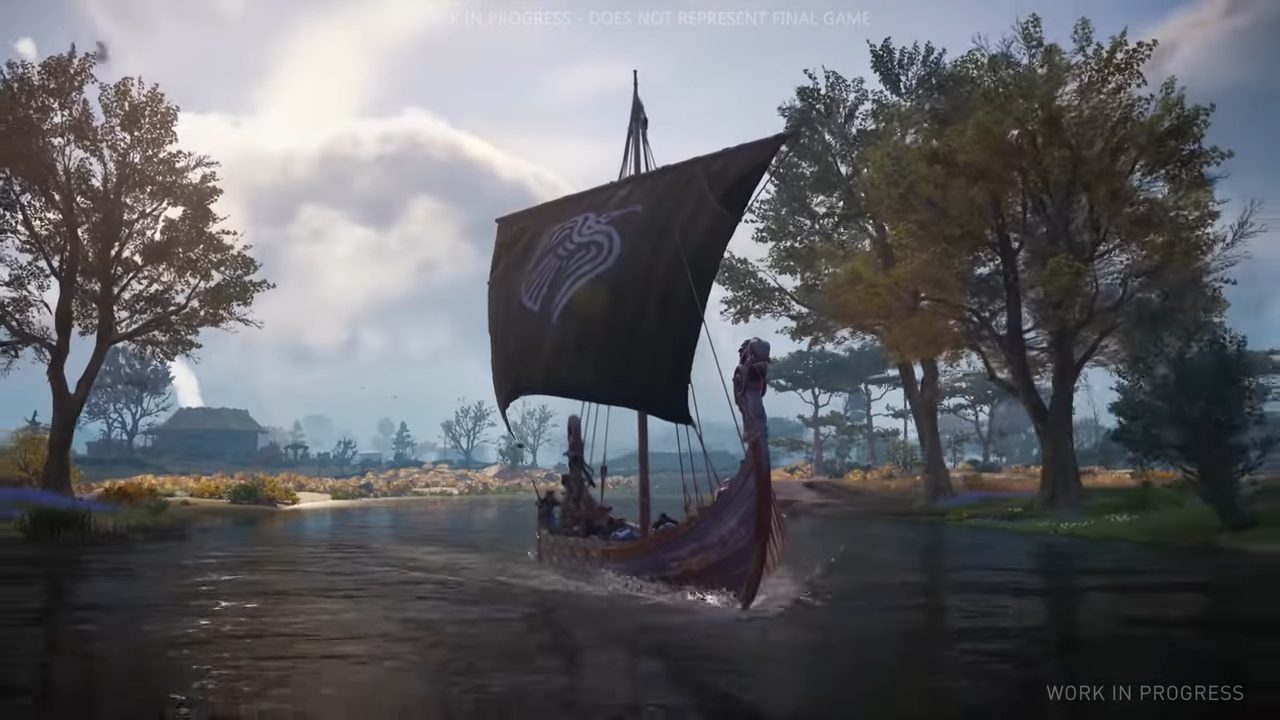This month we got a wonderful treat from Ubisoft: 30 Minutes of exciting Assassin’s Creed: Valhalla Gameplay revealed during the Ubisoft Forward event!
The discussion with Philippe Bergeron (Quest Director of Assassin’s Creed: Valhalla) demonstrated a story-driven Viking raid of a castle, combat with new dual-wielding and stun features, a boss fight against Rued and his hunting wolf and then just plain angry Rued, a major quest decision revealing the game’s take on Viking politics, skill books and various loot, weapon progression, locked house puzzles with loot, mystical combat with one of the Daughters of Lerion, and Valhalla‘s take on the iconic Eagle Vision and free-running activities of the series.
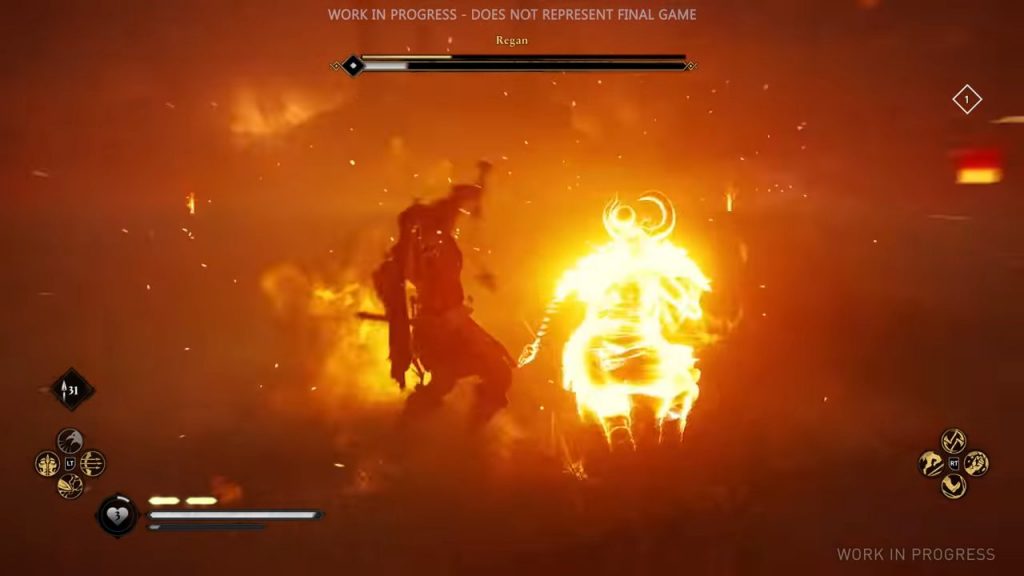
However, in this article we will look towards the open-world exploration of East Anglia in the second part of the deep dive. Particularly, the peculiar bits of interactive Viking culture within it.
Honestly, a historical analysis of Assassin’s Creed: Valhalla deserves its own separate discussion (and it will probably be very, very long). You should definitely watch the gameplay itself, these bits of lore will not be difficult to spot. Still, there were some intriguing in-game Viking-themed features that came into the spotlight: we want to highlight our favorite unusual non-combat activities and encounters scattered throughout the open-world exploration in the game.
Ship’s Own Raider Cat
Eivor, the female protagonist we see in the demo, interacts with a white cat on the street of a Norse village. Once the owner of the cat — a little boy — spots it and starts his approach, the cat runs off.
To the upset child, Eivor offers that “Cats are free spirits, aloof and haughty, like the goddess Freyja” (in Norse mythology this goddess of love and fertility is associated with cats and is known for her iconic cat-chariot). This little bit of exposition isn’t just an empty bit of dialogue. Once the boy expresses concern over the cat’s feral behavior, Eivor offers to catch the cat and get him on her ship — after all, “ship’s cats are good luck.”
The cat and Eivor instantly bond and the little fluffball begins to cozily occupy the space underneath the longboat’s command post.
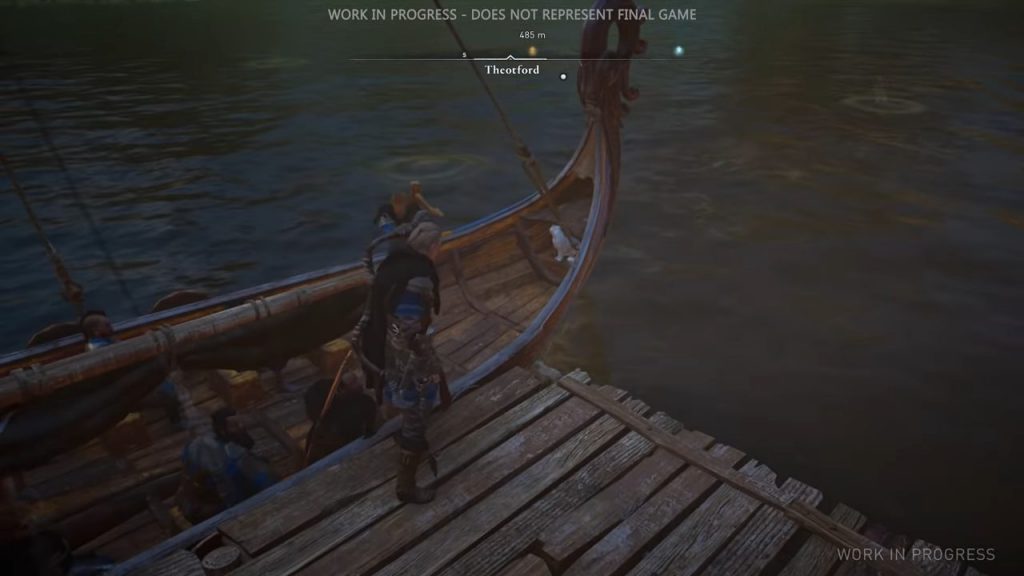
What other stories the little companion’s presence on the board will bring is uncertain for now. However, we do know that bits of ballads and stories can be triggered from your crew or your skald during your travels by ship (continuing the naval tradition of the series), where you can learn more about your sailors. Perhaps the Raider Kitty will become just one of them.
Bet Some Coins in Viking Poetry Battle
P-poetry battle…? Well, yes! Surely you have heard of flyting! If you haven’t, think about it as a Viking rap battle — a rhythmic exchange of clever personal insults.
Assassin’s Creed: Valhalla‘s take on this Norse historical tradition can be seen when Eivor chats up an Anglo-Saxon man full of belittling rumors about the protagonist. Challenging him to a flyting duel with some coin, Eivor proceeds to outdo the man’s petty accusations with claims of her wit and prowess, complete with a witty rhyme.
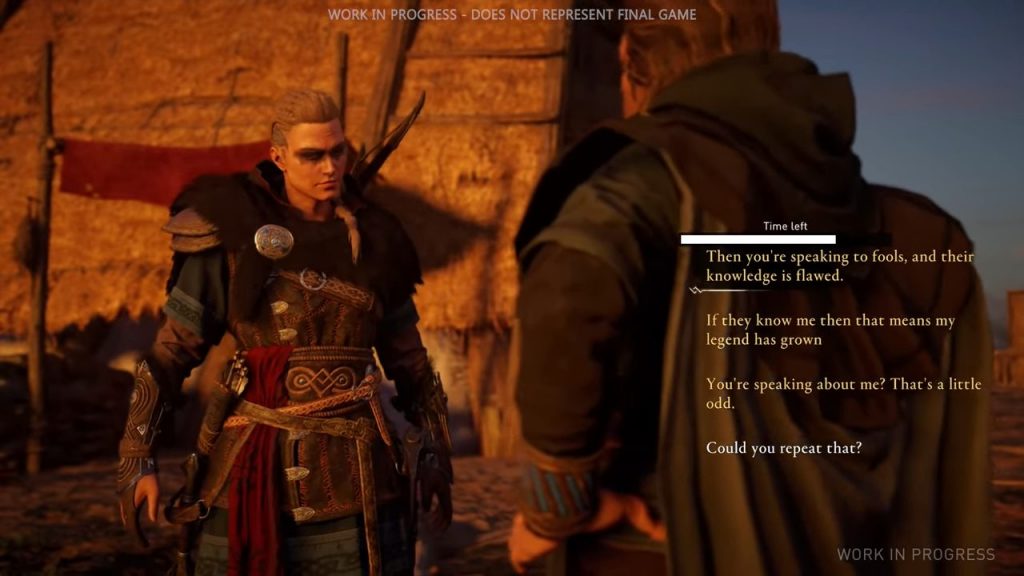
This implementation of the interesting feature left many fans in the commentary section underwhelmed, so we will have to see if it will get some more flavor added to it once the game comes out. Honestly, even as they stand right now flytings can be an amusing little activity to participate in between the quests.
Its presence in the gameplay is what shows that the Ubisoft developers still care about the historic content behind their games and they are willing to continue to experiment with them.
Meditative Assembly of a Cairn
Ever since Assassin’s Creed:Origins we had little puzzles alike glyphs and constellations that had a unique “zen” quality about them. In Valhalla, the tradition is continued with an interesting activity of creating a stone tower, challenged by the game’s physics engine. This activity has a Gaelic origin, marking special locations (such as graves) or helping to mark out a trail through a challenging or a barren terrain.
While the goal with the in-game puzzle is to stack them as high as possible, Philippe assured the viewers that the ultimate hope is that a player will enjoy the activity itself and take in the surrounding view. Also, the fact that the structure will be left standing in the world in its final form might make the players feel like they left a personal mark on the surroundings.
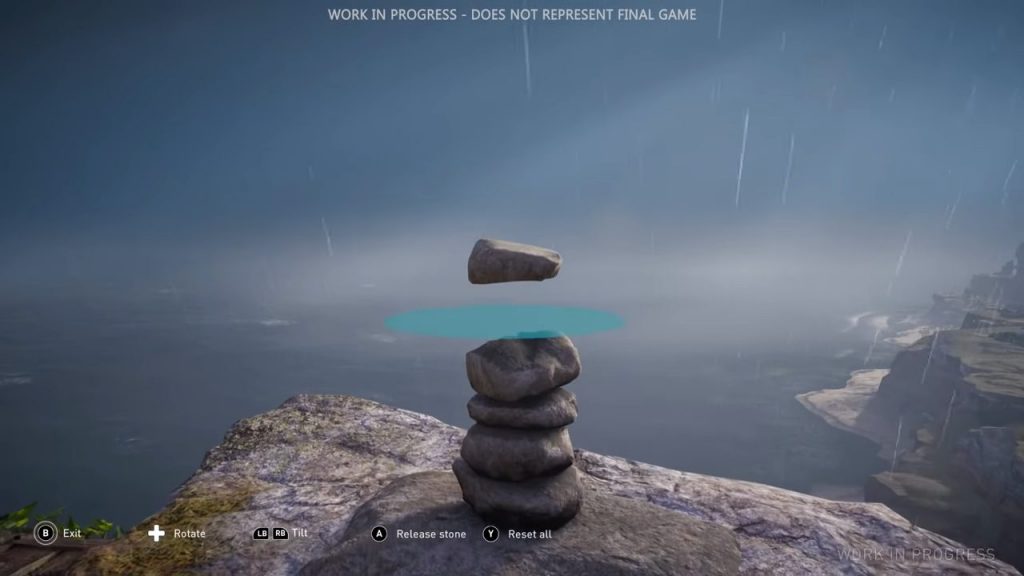
For now it’s hard to see how this activity will continue to hold its charm going forward into the game, but there is some potential here as well. For one, there is a bit of personal story that is revealed with the puzzle in the demonstration.
Eivor remembers her mother’s voice telling her the story about her and Eivor’s father stacking stones into cairns: “Think of this as a test of mind and wit. Stack the cairn stones high and wide, into any shape you like.”
So, these are the most peculiar features that stood out to us as Ubisoft’s notable attempts at incorporating Viking culture into the non-combat open-world activities. Other notable features include special altar offerings and a thematic sidequest connected to one of them, a drinking contest at the wedding, and some drunk archery that follows. While it is hard to know how engaging these more novel features will be simply based on their brief appearances in the demo footage, it is encouraging to see that Ubisoft continues to give a lot of attention to the development of their historical settings.
And, of course, the final release of the game will most likely have even more non-combat activities and encounters that attempt to immerse the player in the daily life of a Viking warrior, complete with exploration, story, and the traditional Assassin’s Creed landmark explorations and dexterous activities.
But, tell us what you think about the demo footage the circulating information! What are your reservations about the Assassin’s Creed Valhalla and what are your hopes?
Let us know in the comments below!
